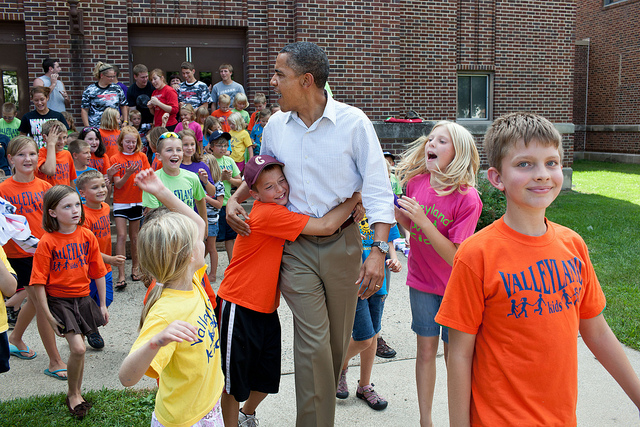Should schools provide free breakfast in classrooms?

Sean Corcoran, New York University; Amy Ellen Schwartz, New York University, and Michele Leardo, New York University
Child hunger is a serious problem: 48 million Americans, including more than 15 million children, live in households that lack the means to get enough nutritious food on a regular basis. In large cities, about 25 percent of households with children do not have sufficient food.
The federally funded National School Breakfast Program has long sought to improve these numbers, by providing a free or low-cost breakfast for students in participating schools. In addition to reducing food insecurity, the program has been found to improve students’ health and nutritional intake as well as their academic achievement.
Even though school breakfast is affordable (or free), meets federal nutrition guidelines and has the potential to benefit children in multiple ways, participation in the School Breakfast Program is surprisingly low. Nationally, only about half of eligible students participating in the School Lunch Program take breakfast.
In fact, in New York City, less than a third of all students take a breakfast each day. This is particularly surprising because breakfast has been offered free to all students since September 2003.
So why are the numbers taking advantage of free breakfast so low? What difference might it make if they were higher?
Why don’t kids eat free breakfast?
There are several reasons that participation in the School Breakfast Program is low.

Why don’t children eat breakfast? sheri chen, CC BY-NC
First, breakfast is offered in the cafeteria before school hours, and many students are unable to arrive to school early, because of transportation or family commitments. Second, children may not be aware that breakfast is served in the cafeteria before school. Finally, children are often unwilling because of the stigma associated with a trip to the cafeteria for a free breakfast.
Introduced more than a decade ago, Breakfast in the Classroom (BIC) has been adopted in many school districts as part of the school day. Breakfast is offered free to all students in their classroom at the start of the day, rather than providing it in the cafeteria before the bell. Cities such as Los Angeles, Dallas, Detroit, Cincinnati and Newark show high rates of participation.
Here is how it works
Breakfast in the Classroom is given during the first 10-20 minutes of the school day. It typically includes cold, packaged items (such as cereal, bagels, yogurt and fresh fruit). In some schools, breakfast is offered on mobile carts as students walk in the door (“Grab-n-Go”), or as a “Second Chance” breakfast, between the first and second periods of middle or high school.
New York City began rolling out Breakfast in the Classroom in 2007. According to the Department of Education, the program is now offered in nearly 500 of the city’s 1,700 schools. The city serves over 30,000 classroom breakfasts each day. Beginning this year, it is expanding the program to all elementary schools. And there are plans to extend the program to all schools in the district.
Advocates for the program argue that in addition to reducing hunger and food insecurity, moving breakfast from the cafeteria into the classroom will, in turn, improve school attendance and academic performance. Some also argue it will improve student engagement by building a sense of community around eating breakfast together, and provide an opportunity to integrate nutrition and healthy eating habits into the curriculum.
However, critics have raised concerns that Breakfast in the Classroom could contribute to weight gain, as some children consume more calories by eating two breakfasts – one at home and one at school. Or that the program could take away from instructional time at the start of the school day.
What does evidence show?
Our research looked at the early effects of New York City’s Breakfast in the Classroom program. We examined the program’s effects on school breakfast participation, student weight outcomes including body mass index (BMI) and obesity, as well as academic outcomes. We tracked data on student weight and academic achievement at different points of time, to compare students in schools that did and did not adopt the program.
Our sample included students in over 1,100 NYC public elementary and middle schools between the 2006-07 and 2011-12 school years (of which about 300 offered Breakfast in the Classroom at the time of our study).

Does breakfast in classroom lead to obesity? U.S. Department of Agriculture, CC BY
To begin with, we found that serving breakfast in classroom substantially increased school breakfast participation. For example, in schools offering breakfast in classroom in 25 percent or more of classrooms but not schoolwide, the participation rate nearly doubled. The increase was even higher – about two-and-a-half times – for schools offering the program schoolwide.
Importantly, we found no evidence that Breakfast in the Classroom led to student weight gain. We found no impact on BMI or the incidence of obesity. We also found no evidence that breakfast in the classroom reduced academic performance, as measured by achievement on reading and math standardized tests for students in grades three through eight.
Serve breakfast in classrooms
Our study suggests that the program certainly did no harm by taking away from instructional time or increasing student weight.
Other rigorous research on Breakfast in the Classroom has found the program can improve school attendance and increase academic achievement.
Taken together, our results show serving breakfast in the classroom increased participation in school breakfast even when free breakfast was being served in the school cafeteria.
Our work also shows critics’ fears that the Breakfast in the Classroom program will cause weight gain and reduce academic performance due to a loss of instructional time are largely unwarranted. There is no reason, therefore, not to expand Breakfast in the Classroom.
![]()
Sean Corcoran, Associate Professor of Educational Economics, New York University; Amy Ellen Schwartz, Professor of Public Policy, Education, and Economics and Director of the NYU Institute for Education and Social Policy, New York University, and Michele Leardo, Assistant Director of Education and Social Policy, New York University
This article was originally published on The Conversation. Read the original article.






